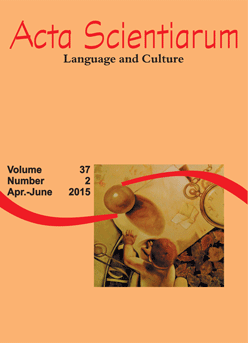<b>Apology speech act realization in Sarawani Balochi: a case study of male university students
Abstract
Adapting Cross Cultural Speech Act Realization Project (CCSARP) taxonomy proposed by Blum-Kulka et al. (1989), this study examines the effect of power and gender of the addressees on the type and number of apology strategies used by (50) Sarawani Baloch male university students (SBMUS).The results, supporting the universality of employing apology strategies, indicate the chosen strategies employed by SBMUS were mostly the same as those used by the participants in other languages mentioned in CCSARP. Nevertheless, SBMUS also employed some different strategies not predicted in that project, reflecting the influence of religious and cultural factors governing Baloch society of Sarawan. Furthermore, power and gender of the addressees mostly does not affect the type and number of apology strategies employed by SBMUS. As to the type and number of strategies, the most frequent strategies were ‘illocutionary force indicating devices’ and the combination of 3 strategies, respectively. It seems that culture, religion, context and the situations in which an apology occurs, have significant effect on the type and number of apology strategies employed by these participants.
Downloads
DECLARATION OF ORIGINALITY AND COPYRIGHTS
I Declare that current article is original and has not been submitted for publication, in part or in whole, to any other national or international journal.
The copyrights belong exclusively to the authors. Published content is licensed under Creative Commons Attribution 4.0 (CC BY 4.0) guidelines, which allows sharing (copy and distribution of the material in any medium or format) and adaptation (remix, transform, and build upon the material) for any purpose, even commercially, under the terms of attribution.
Read this link for further information on how to use CC BY 4.0 properly.




















6.png)









